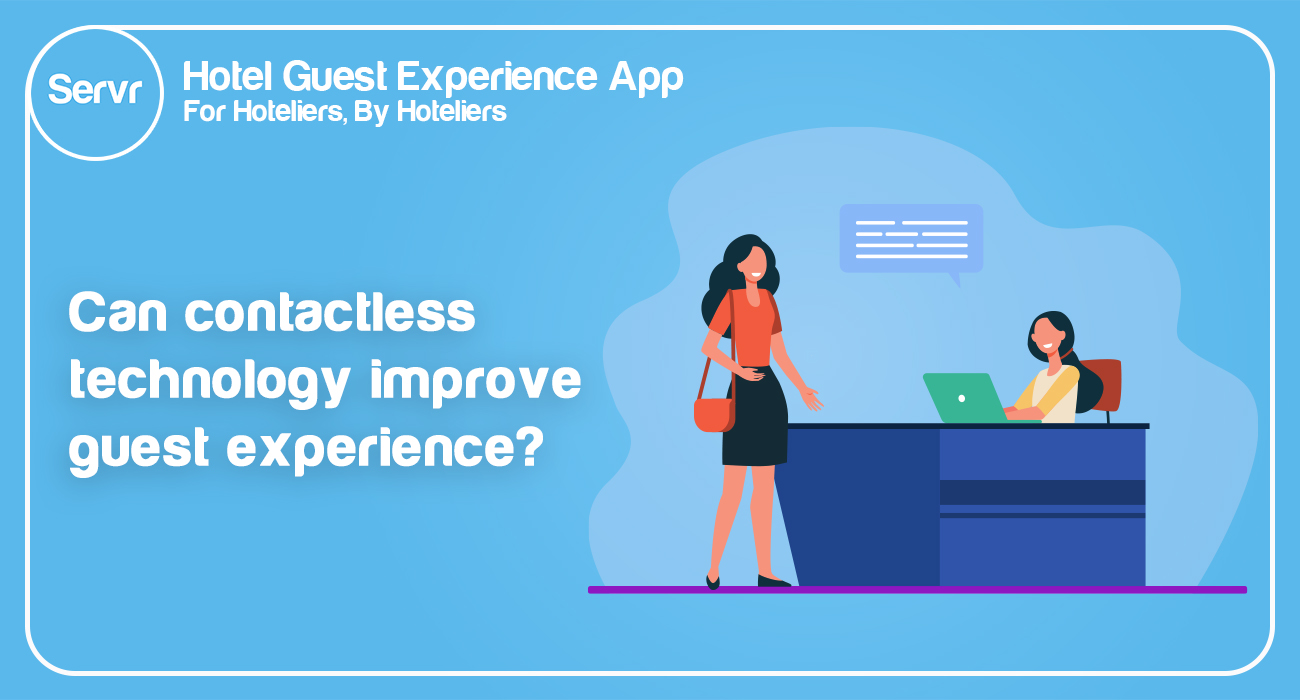
Since the COVID-19 pandemic made us aware of the increased contamination risks, contactless technology has gained popularity. The hospitality industry was obliged to adapt to the new environment and use contactless technology.
Because of this, the adoption of new-generation technology has increased, and contactless hospitality has become the norm these days. HORECA businesses currently use contactless technologies to guarantee a clean and safe guest experience.
We’ll explain what contactless hospitality is and its advantages to you in this blog.
What is a contactless guest experience?
Contactless hospitality services eliminate human contact or reduce it to a necessary minimum.
Face-to-face interaction increases the risk of getting a virus during the pandemic, so contactless technology can be extremely useful in this situation. The majority of the time, interactions take place when customers speak with business representatives and with other customers, or when workers connect.
It is possible to conduct each of these encounters digitally, giving customers a secure, stress-free, and seamless experience. There is nothing contactless hospitality solutions can’t perform more quickly while maintaining the brand identity, including booking reservations, checking into and out of hotels, ordering catering and room service, sightseeing, and learning about events and tourist sites.
According to surveys, 70% of millennials would want a contactless hotel experience. This rate is even greater for gen Z clients. Technology is transforming 21st-century hospitality and is destined to become an indispensable component of modern hotel facilities.
Benefits of the contactless guest experience
Contactless technology is being warmly embraced by the hospitality sector. Consequently, what benefits can a contactless guest experience provide for businesses and clients, and how does it enhance hotel services?
Let’s examine how technology is transforming the hotel sector.
Safety
Travellers from all over the world can enjoy their experiences with less worry due to the epidemic thanks to contactless hospitality services. Contamination hazards are significantly minimised when all interactions are handled through an app or speech service that provides a hands-free experience.
Most importantly, improved safety does not degrade service quality. On the other side, hotel staff is less likely to get a virus through interaction with guests.
Reduced stress
Also particularly appealing to people who find interacting with hotel staff time-consuming and difficult is contactless hospitality. Undoubtedly, a lot of clients find misunderstandings brought on by linguistic and cultural barriers to be intimidating.
Customers can enjoy the pure contactless guest experience thanks to contactless solutions, which relieve the stress of interpersonal interactions.
Automated workflow
In addition to being healthier, contactless technology solutions also remove human mistakes while processing paperwork, credit card information, registrations, etc. They assist in streamlining and automating tasks that would otherwise require the efforts of multiple employees.
Integrated analytics
Analytics and insights are also advantageous for businesses utilising contactless digital solutions. Every step of the customer’s stay, including when they reserve their rooms and when they leave reviews, is tracked by digital hospitality solutions.
Personalized services
Through the use of the clients’ data, contactless hospitality solutions allow hotels to customise their services to their specific clientele. Personalization of services is a key selling factor in a post-industrial world since it elevates the client experience to a whole new level.
Competitive advantage
The digitization of the hospitality industry is fast approaching, and businesses that use contactless hotel technology first will have a clear competitive advantage.
Conclusion.
The COVID-19 situation has had a significant detrimental influence on the hospitality industry, as well as forcing businesses to reconsider their business models and implement new technologies. Contactless hospitality will rule in a post-pandemic future, and early adopters will undoubtedly prevail.
The need for readjustment, however, imposes high standards on hospitality businesses: integrating contactless technology in hospitality would entail significant adjustments, such as staff training, the adoption of new security measures, and potentially modifying an organization’s entire structure.
Most importantly, the tech alliances that businesses create will be crucial. Technological solutions must be adapted to a company’s specific requirements and seamlessly integrated with existing infrastructures and business processes to create value. They will also need ongoing support and updates.




